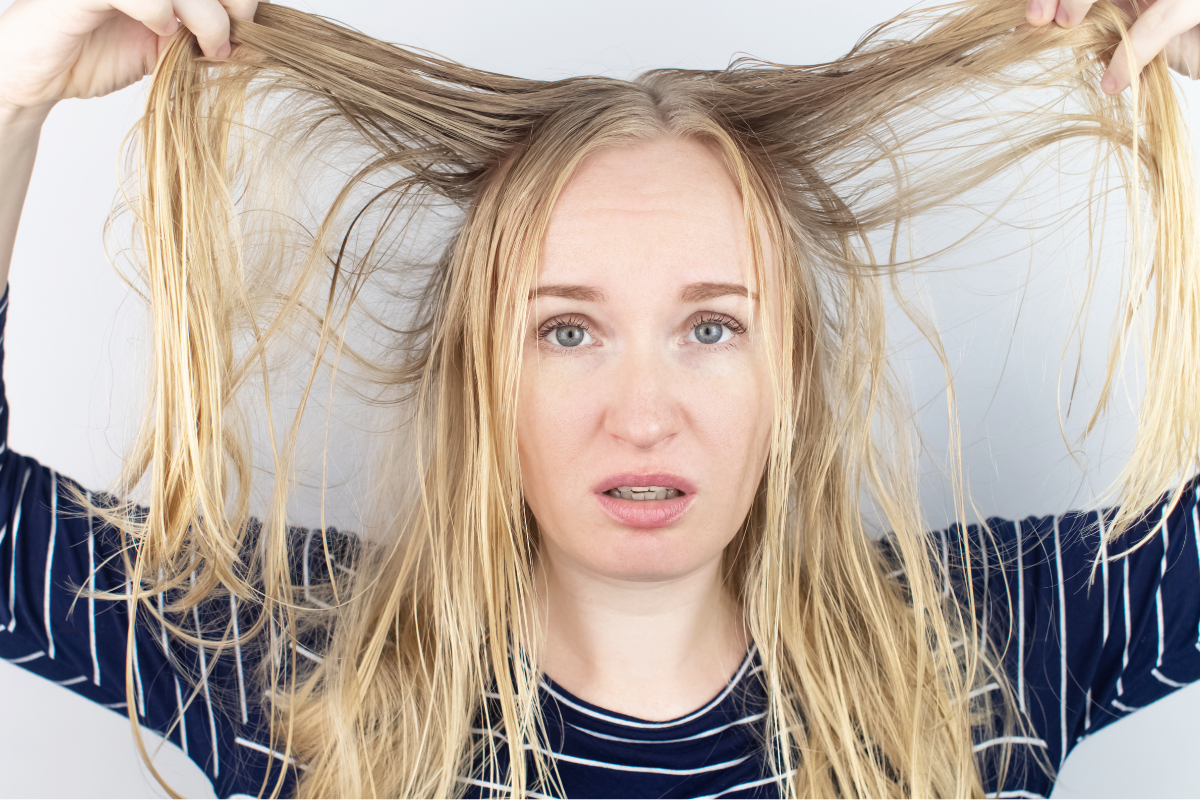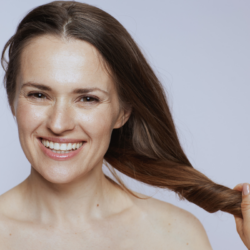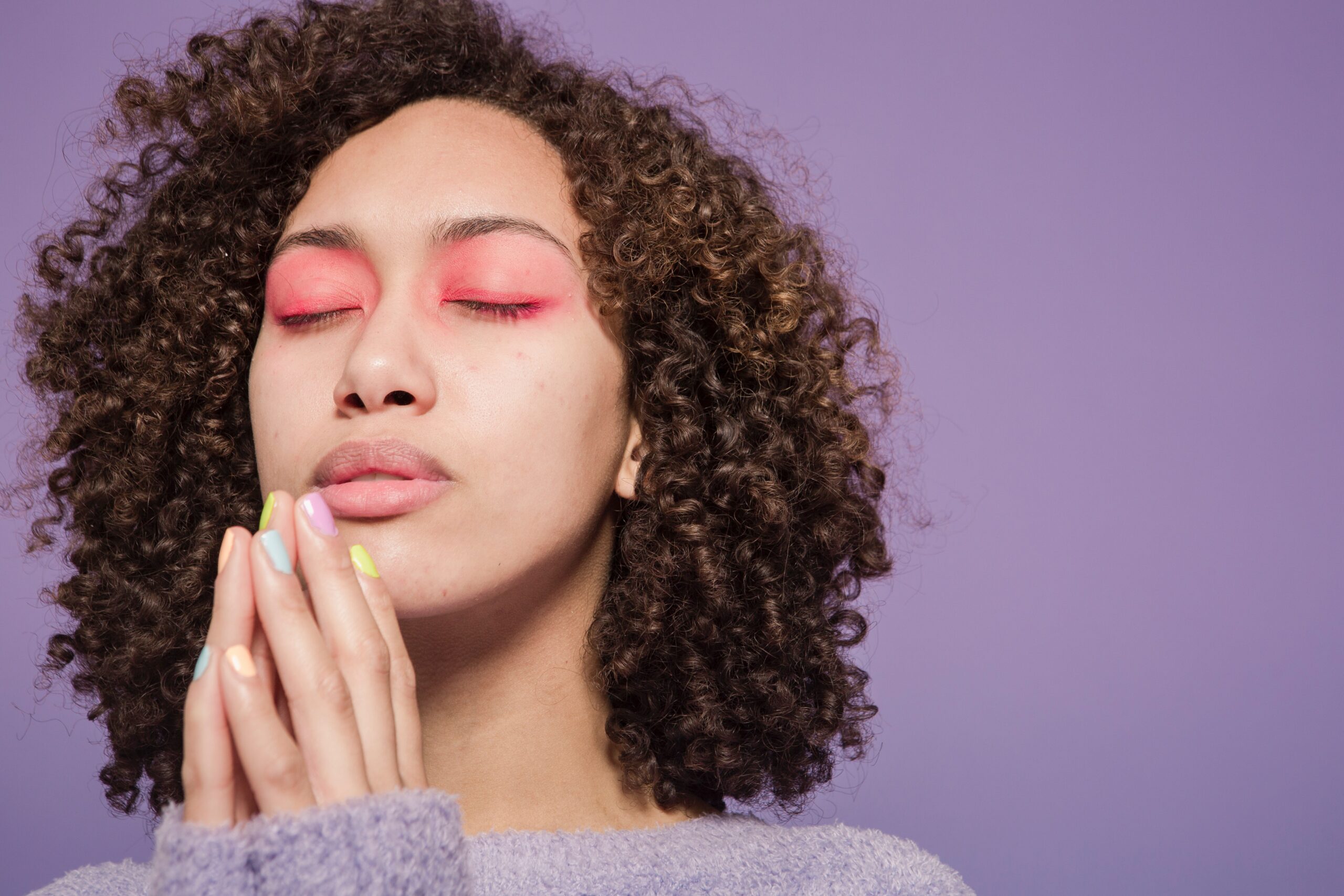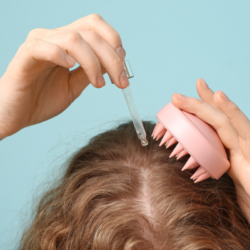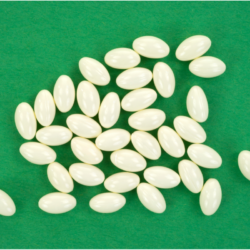When it comes to hair care, vegetable oils are essential for maintaining various hair types. Extracting their richness from plants, seeds or fruit, they concentrate vitamins, minerals and essential fatty acids. These oils nourish deep down and protect against damage. Here we explore the specific benefits of different plant oils and how they can be used to enhance the health and beauty of oily hair.
Oily hair and the use of plant oils
Oily hair is caused by excessive sebum production from the scalp, creating heavy hair. However, this is actually an oily scalp, as hair does not produce sebum.
Hyperseborrhoea, an imbalance due to an overproduction of sebum by the sebaceous glands of the scalp, causes greasy hair. Hormonal imbalances, especially an increase in androgens, trigger this overproduction. This leads to an accumulation of sebum in the follicular canal and its discharge onto the scalp. This condition is common in women during adolescence and the peri-menopause. Other endogenous non-hormonal factors, such as sebum liquefaction, hypersudation or the use of inappropriate hair products, can also contribute to hyperseborrhoea.
Not to mention various other factors such as :
- Stress and anxiety: Under stress, our bodies release cortisol, which abnormally stimulates the sebaceous glands. They then produce more sebum than necessary.
- A highly polluted urban environment can lead to clogged pores in the scalp, accentuating the “greasy hair” effect caused by sebum.
- An inflammatory diet can upset the hormonal balance and encourage sebum secretion.
- Unsuitable, irritating cosmetics or over-frequent washing can irritate the scalp. In response to this irritation, the sebaceous glands in the scalp secrete more sebum.
- Heredity: Some people have hair that naturally gets greasy faster.
Combination hair is a clever mix of dry and oily hair problems. It is characterised by an oily scalp and dry lengths and ends. For oily scalps, organic jojoba oil and organic hazelnut oil will regulate excess sebum. These sebo-regulating oils will rebalance the scalp and moisturise without weighing the hair down.
Jojoba plant oil to regulate oily hair
Jojoba oil is known for its ability to regulate sebum without making hair greasy, making it ideal for oily and dandruff-prone hair. Use it alone or with lipolytic essential oils such as Atlas Cedar or Grapefruit. Massage a tablespoon of Jojoba oil into the scalp for 30 minutes before shampooing to maximise its benefits.
Made from the oil seeds of the Jojoba plant, a shrub from Central America, Jojoba oil is nicknamed “Inca gold”. Its similarity to human sebum makes it an asset in cosmetics. It is distinguished by its slightly orangey yellow colour.
Rich in fatty acids, Jojoba oil moisturises and nourishes the hair. It protects hair from UV rays and pollution, stimulates regrowth and keeps it healthy. Suitable for all hair types, it regulates sebum production in oily hair and strengthens dry hair. On dull hair, it encourages cell renewal, bringing shine and vigour.
Apply it as an oil bath for a deeper effect. It can also be used as a make-up remover, massage oil or after-shave treatment. Its vitamin E and resin ester content makes it a versatile and effective product for a range of hair and skin care products. This oil is therefore a versatile plant oil in terms of hair care and cosmetic aids.
Nigella plant oil to purify oily hair
Apply black cumin oil by massaging it into the scalp and hair after shampooing. For optimum effectiveness, leave on for as long as possible, ideally overnight. It is particularly suitable for damaged, dull, dry or brittle hair.
Black cumin oil moisturises the scalp thanks to linoleic acid and has anti-inflammatory properties due to thymoquinone, which reduces the production ofIgE antibodies. Its antibacterial, anti-infectious and antifungal qualities cleanse the scalp, promoting healthy hair growth. The oil also contains antioxidant compounds that protect the hair fibre.
To soothe an irritated scalp, black cumin oil is effective thanks to its anti-inflammatory and nourishing properties. It can be rubbed into the scalp one hour before shampooing. For sensitive skin, it is advisable to dilute it with another vegetable oil. An allergy test is recommended before using for the first time.
The particular case of weakened hair loss:
Fine hair is often subject to frequent hair loss, particularly at the change of season. It too deserves appropriate care. Some plant oils can weigh hair down and are not suitable for fine hair. However, other oils stimulate hair growth while preserving volume.
- To reduce hair loss, it’s best to use coconut oil for dry hair. This can encourage hair growth.
- For oily hair prone to falling out, castor oil is the best choice. By massaging into the scalp, this highly effective oil will stimulate the hair bulb and, in the long term, grow hair in bald areas. Castor oil can be used to grow and thicken your mane. Castor oil is also ideal for fine, fragile hair that needs strengthening. It will give it body and mass, just what it’s looking for. Hair lacking volume will also gain mass with cade oil.
- Finally, olive oil also slows hair loss and limits thinning. However, it has the disadvantage of being difficult to rinse out.
Sources
- https://dumas.ccsd.cnrs.fr/dumas-00786928/document
- https://hal.univ-lorraine.fr/hal-01733956
- https://www.aroma-zone.com/page/cheveux-gras-que-faire

